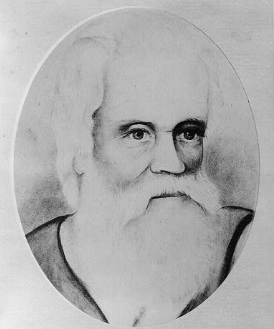About Historyfriend.com
History Project Templates PDF
Socrates: A Great Thinker
Socrates was a very wise and important person from Ancient Greece. He lived a long time ago, around 469 to 399 BCE. People remember him because he was a great teacher and thinker. He didn't write down his ideas himself, but his student Plato wrote about him.
Socrates loved asking questions to help people think for themselves. He believed that by asking questions, we can discover important things and learn more about the world. He always wanted to find the truth, even if it meant challenging what others believed.
Socrates was so committed to his ideas that he faced some challenges. Some people didn't like the questions he asked because they made them think in new ways. In the end, he was even sentenced to death, but he stayed true to his beliefs until the end.
Today, people still talk about Socrates and his teachings. He is often considered one of the greatest philosophers in history. So, Socrates was a wise teacher who loved asking questions to help people learn and think for themselves.

Biography: Socrates
Early Life:
Socrates was an ancient Greek philosopher who lived a long time ago, around 469-399 BCE. He didn't write down his thoughts, so we know about him from what his friends wrote and talked about.
The Thinker:
Socrates loved to think and ask questions. He wasn't like other teachers who gave answers; instead, he made people think for themselves. He believed that asking questions and discussing ideas made people smarter.
The Barefoot Philosopher:
Socrates didn't care much about fancy clothes or a big house. He often walked around Athens, the city where he lived, barefoot and in simple clothing. He wanted people to focus on their minds, not on how things looked.
The Socratic Method:
Socrates had a special way of teaching called the "Socratic Method." Instead of giving direct answers, he asked lots of questions. This made his students think deeply and figure things out on their own.
Trial and Legacy:
Socrates got into trouble because some people didn't like his ideas. They accused him of not believing in the gods of the city and corrupting the youth. In the end, he was put on trial and sentenced to drink poison. Socrates accepted his fate calmly, teaching us about facing challenges with courage.
Fun Facts
Socrates was born in Athens, Greece, around 470 BC.
He didn't write books, but his ideas were passed down by his students, like Plato.
Socrates loved to ask questions and have conversations with people to learn new things.
Timeline
Around 470 BC: Socrates is born in Athens, Greece.
400s BC: He becomes known for his clever way of thinking and talking to people.
399 BC: Sadly, Socrates is put on trial for his ideas and sentenced to drink a special poison.
His Legacy: Even though he didn't write books, his students like Plato wrote down his ideas, and they spread throughout history.
Impact on the World
Socrates was a thinker who changed how people saw the world and themselves:
Questioning Everything: He believed it was important to question and think deeply about things to learn and grow.
Teaching Style: Instead of giving answers, Socrates would help people discover their own answers by asking them thought-provoking questions.
Philosophy: He's considered one of the first philosophers, or people who study and think about big questions.
Inspiring Others: Socrates inspired many other philosophers and thinkers, and his ideas still influence how we think today.
Sources and Recommended Books for Elementary Students
"Who Was Socrates?" by Jim Gigliotti
This book is part of the "Who Was?" series, which is designed for elementary-age readers. It provides a simple and informative overview of Socrates' life and contributions.
"Socrates: Ancient Greek Philosopher" by Carla Mooney
This book is from the "Great Minds of Ancient Science and Math" series and is suitable for elementary readers. It presents Socrates' life and ideas in a way that is accessible and engaging.
"Socrates: Greek Philosopher" by Lisa Zamosky
Another entry in the "Famous Greeks" series, this book offers a kid-friendly introduction to Socrates, presenting his story and philosophy in an easy-to-understand format.
"Socrates (Getting to Know the World's Greatest Philosophers)" by Mike Venezia
This book combines information with humor and illustrations, making it an entertaining introduction to Socrates and his philosophical ideas for elementary students.
"The Story of Philosophy: The Lives and Opinions of the World's Greatest Philosophers" by James Garvey and Jeremy Stangroom (Illustrated by Elad Yoran)
While not exclusively focused on Socrates, this book introduces various philosophers, including Socrates, in a way that is accessible to younger readers. It provides a broader context for understanding the history of philosophy.
Remember to review these books first to ensure they align with your educational goals and the maturity level of your students. Additionally, it's often beneficial to supplement readings with discussions and activities to enhance comprehension and engagement.